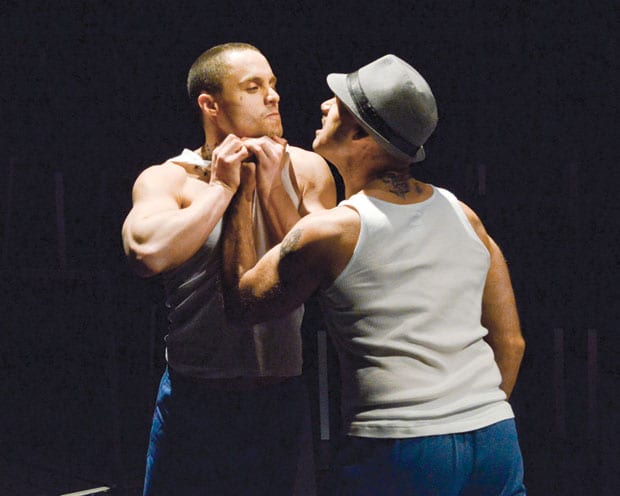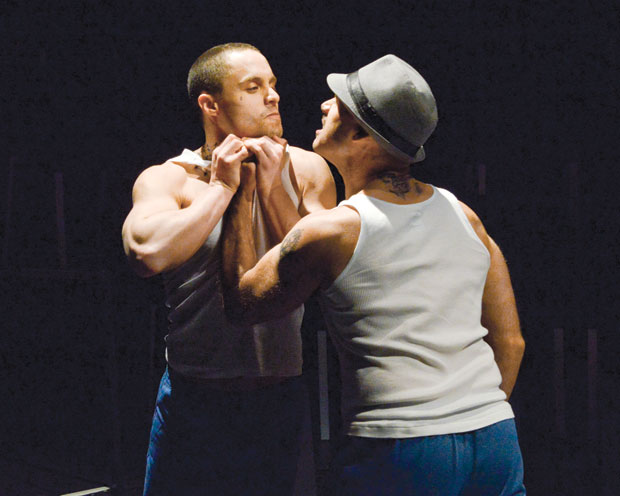The British philosopher Jeremy Bentham invented the idea of a panoptikon, a circular prison where the inmates could be housed in an external ring while a guard station at the center could efficiently monitor their activities. So when you enter the 120-seat performance space of Dallas Theater Center’s Oedipus el Rey, set partly in a men’s prison in
Southern California, you’re struck by how similar the panoptikon design is to a classical Greek amphitheater, only in reverse: Here, the audience sits on the outside, observing the inmates in the crucible of the center: It’s almost the final ring of Hell.
It certainly feels that way for Oedipus (Philippe Bowgen, pictured left), a 20ish thug whose spent most of his life in the penal system, from juvie to Chino. He’s never even slept with a girl, so when he gets out, he happily falls for the first chica he lays eyes on, an older woman named Jocasta (Sabina Zuniga Varela), the Latina mob princess of a superstitious clique of Chicanos who make the Sopranos look like the Osmonds.
Of course, we know it’s doomed: Here as in Sophocles’ 2-500-year-old tragedy, Jocasta is Oedipus’ mom, taken from her as an infant because her husband feared a prophesy that, of course, came true: That he would be killed by his own son. It’s the foundation not only of Freudian analysis, but of the tragic tradition: Our fate is fixed, and we cannot escape the essence of who we are. It doesn’t fit in well with popular Enlightenment notions of free will, but in Luis Alfaro’s gruesome, explicit and thought-provoking adaptation, you feel Sophocles might have had it right all along. For entire segments of American society beat down by a cultural cycle of exclusion, limited economic opportunity and recidivism, being born into a family can be as much destiny as the inevitability of plucking out your eyes and sleeping with your mom.
Director Kevin Moriarty frames those issues with the same intense, homoerotic energy of an episode of Oz, where masculinity is defined by antiquated ideas of violence, physicality and domination (there’s a long scene of explicit nudity and even more blood). All the actors handle the East L.A. patois of Spanglish convincingly (it’s a vastly different accent that Texas’ Mexican-infused Spanish), and despite the heavy-handed ending, it plays most of its symbolism close to the vest. Updates of classical works are often more misses than hits; this one make Greek tragedy not only seem vibrant, but relevant and contemporary.
Wyly Theatre, 2400 Flora St. Through Mar. 2. DallasTheaterCenter.org.
This article appeared in the Dallas Voice print edition January 31, 2014.












